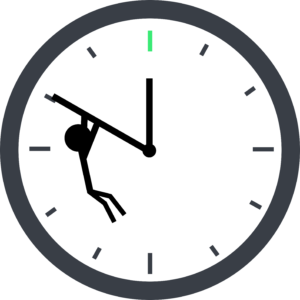
Strategies for Maintaining Mental Sharpness | Boost Brain Health at Any Age
Maintaining mental sharpness is essential for enjoying a long, independent, and fulfilling life. While some cognitive changes are natural as we age, proactive strategies can help preserve memory, enhance focus, and support overall brain health. With the right habits, you can keep your mind agile and resilient for years to come.
This guide explores practical strategies for staying mentally sharp, backed by science and easy to integrate into daily life.
The Science of Mental Sharpness
Neuroplasticity: The Brain’s Ability to Adapt
Your brain is remarkably adaptable, even as you age. Neuroplasticity, the brain’s ability to form and reorganise connections, allows you to:
- Learn new skills.
- Strengthen memory.
- Recover from cognitive challenges.
Age-Related Cognitive Changes
- Slower Processing: Tasks may take longer, but accuracy can remain intact.
- Memory Lapses: Forgetting names or misplacing items becomes more common but is manageable.
With consistent mental stimulation and healthy habits, these changes can be minimised.
Dietary Strategies for Mental Clarity
Brain-Boosting Foods
- Omega-3 Fatty Acids: Found in salmon, walnuts, and flaxseeds, these support brain cell structure and function.
- Antioxidants: Blueberries, spinach, and green tea protect against oxidative stress and inflammation.
- Whole Grains: Provide steady energy to the brain through glucose.
What to Avoid
- Added Sugars: High-sugar diets can impair memory and increase inflammation.
- Processed Foods: Often lacking in nutrients vital for brain health.
Hydration Matters
Dehydration can lead to fatigue and difficulty concentrating, so aim for 6–8 glasses of water daily.
Cognitive Exercises and Mental Stimulation
- Brain-Training Activities
-
- Puzzles and Games: Sudoku, crosswords, and strategy games improve problem-solving and memory.
- Learning New Skills: Take up a hobby, learn a language, or play an instrument to challenge your brain.
- Continuous Learning
-
- Enrol in online courses or read books on unfamiliar topics to keep your mind engaged.
- Join discussion groups to exchange ideas and perspectives.
Physical Activity and Mental Sharpness
Regular exercise is a powerful tool for maintaining cognitive function.
- Promotes Neurogenesis: Encourages the growth of new brain cells, especially in the hippocampus, which supports memory.
- Improves Mood and Focus: Exercise releases endorphins and reduces stress hormones.
- Increases Blood Flow: Delivers oxygen and nutrients to the brain for optimal performance.
Recommendations
- Aim for 150 minutes of moderate aerobic activity weekly.
- Incorporate strength training to support overall health and brain function.
The Role of Sleep and Rest
Sleep is crucial for memory consolidation and mental clarity.
- Memory Reinforcement: During sleep, the brain strengthens connections formed during the day.
- Detoxification: The brain clears waste products, including amyloid plaques, linked to cognitive decline.
Tips for Better Sleep
- Maintain a consistent bedtime routine.
- Avoid caffeine and screen exposure before bed.
- Create a sleep-friendly environment with minimal light and noise.
Stress Management for Mental Performance
Chronic stress negatively impacts cognitive function by increasing cortisol levels.
Techniques for Reducing Stress
- Mindfulness and Meditation: Improve focus and reduce mental fatigue.
- Yoga and Deep Breathing: Lower stress levels and promote relaxation.
- Gratitude Practices: Shift focus to positive aspects of life, reducing anxiety.
Social Engagement and Cognitive Health
Staying socially active boosts mental resilience and reduces the risk of cognitive decline.
- Build Strong Relationships: Regular interactions with friends and family improve emotional and mental health.
- Participate in Group Activities: Clubs, volunteering, and community events foster a sense of purpose and engagement.
Practical Tips for Daily Brain Boosts
- Start Your Day with a Healthy Breakfast: Fuel your brain with nutrient-dense foods.
- Take Short Mental Breaks: Step away from tasks to recharge your focus.
- Set Achievable Goals: Break large tasks into manageable steps to stay motivated.
- Engage in Nature: Spend time outdoors to refresh your mind and reduce stress.
Debunking Myths About Mental Sharpness
Myth: Cognitive Decline Is Inevitable with Age
Many cognitive changes can be slowed or reversed with proactive habits.
Myth: Brain Training Only Works for Young People
Mental exercises benefit individuals at any age, thanks to neuroplasticity.
Myth: Supplements Alone Are Sufficient
Supplements can complement, but not replace, a healthy lifestyle.
Your Journey to Lifelong Mental Sharpness
Maintaining mental sharpness requires a combination of healthy habits, mental stimulation, and proactive strategies. By nurturing your brain with the right diet, exercise, and social connections, you can preserve your cognitive abilities and enjoy a vibrant, independent life.
At Slowing the Clock, we’re committed to supporting your brain health with resources, tips, and insights. Explore our website for more information on nutrition, exercise, and mental wellness strategies.